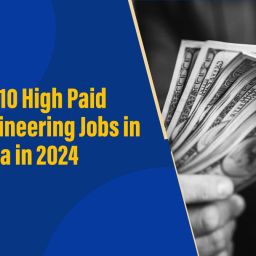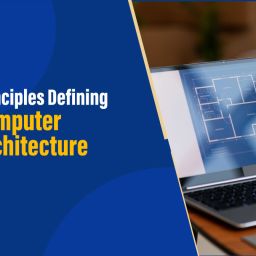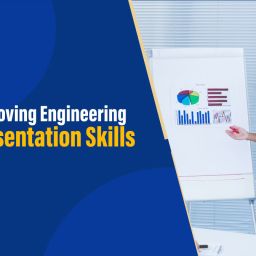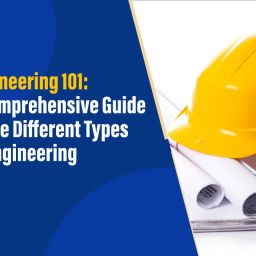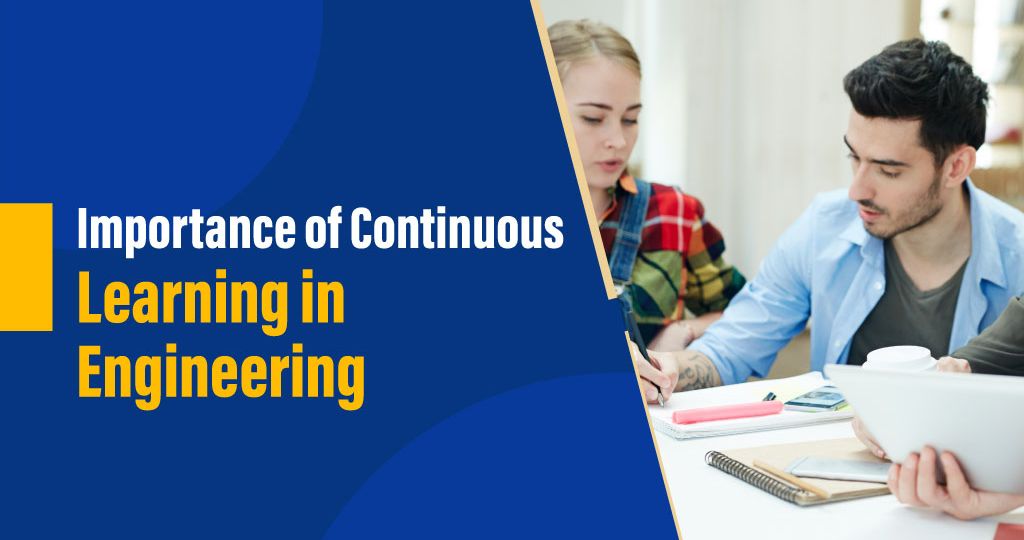
In a field driven by continuous innovation and advancement, staying updated on the latest developments is essential to remain competitive and make a meaningful impact through optimal performance.
For engineers, lifelong learning is not a choice, it is a necessity and all about staying adaptable, open to new ideas and seizing new opportunities for personal and professional growth.
In this blog, let’s look at the 5 compelling reasons for continual learning throughout your engineering career:
- Staying Current: The engineering field is fuelled by technological advancements, emerging trends and evolving industry benchmarks. A technology considered cutting-edge today can be outdated tomorrow, making it crucial for engineers to stay updated and flexible to changes. Continuous learning enables you to stay on top of the latest developments, ensuring that your skills and knowledge remain relevant and applicable to real-world challenges. Karpagam Institute of Technology offers the top five programs in engineering and is one of the best engineering colleges in Coimbatore.
- Professional Development: Continuous learning allows you to enhance your technical expertise and broaden your skill sets. Ongoing education empowers you to tackle increasingly complex projects with confidence, by mastering new software tools, learning about emerging technologies and gaining expertise in specialized areas. By investing in your professional development, you can position yourself as a valuable asset to employers and industry leaders.
- Adaptability: The engineering landscape is influenced by market trends, regulatory requirements and evolving consumer preferences. Continuous learning equips you to adapt to these changes and capitalize on new opportunities as they arise. Whether it’s switching to new specialization areas, embracing sustainable practices or integrating digital technologies into the workflows, continuous learners are more agile and resilient in the face of industry shifts.
- Fostering Innovation and Creativity: Continuous learning stimulates creativity and nurtures a culture of innovation within the engineering community. It exposes you to diverse perspectives, new ideas and best practices from different industries, sparking creativity and encouraging out-of-the-box thinking. Engineers who engage in continuous learning are more likely to propose innovative solutions, challenge conventional wisdom and drive meaningful change in their organizations and the broader industry.
- Staying Competitive: In today’s competitive job market, professional relevance is essential to advance in your career and remain competitive. Continuous learning demonstrates a commitment to personal and professional growth, informing employers and peers that you are invested in staying current and adaptable in your field. Continuous learning can be achieved through formal education, professional certifications or self-directed learning initiatives, positioning yourself for long-term career success and unlocking new opportunities for advancement.
- Networking Opportunities: Continuous learning provides invaluable networking and collaboration opportunities, enabling you to connect with industry experts, thought leaders and fellow professionals. You can expand your professional network, share knowledge and collaborate on projects with peers from different backgrounds by attending conferences, participating in workshops or joining professional associations. These interactions enrich your learning experience besides opening you to new career prospects and collaborations.
What is continuous learning?
Continuous learning is augmenting your knowledge and skills consistently. For engineering talents, professional development at the workplace is about developing competencies and expertise while also retaining the skills that were developed previously.
To succeed, stay competitive and meet the evolving demands of the business climate, organizations are continually adapting to changing socio-economic environments. They have introduced continual learning initiatives in the workplace to increase employee engagement, job satisfaction and knowledge retention.
Principles of continuous learning:
In conventional employee training approaches, employee learning is at its peak immediately after the training and declines over time due to lack of reinforcement. Whereas in continuous learning, the employee attends multiple refresher training programs to reinforce his learning.
To create an environment of continuous learning, organizations should include the following key elements:
- To anticipate and create frequent learning opportunities as per requirements
- Continuous opportunities for learners to apply their learnings and test their competencies
- Cultivating a culture that encourages sustainable learning approaches and knowledge-sharing
- Getting regular feedback from both the instructor and students to optimize the process
Benefits of continuous learning:
Continuous learning at the workplace enables employees to expand their skills, retain knowledge and generate new ideas, thereby boosting their productivity and confidence.
Let’s look at some of the benefits that individual employees experience through continuous learning:
- Equips young talents to achieve their career goals
- Obtain professional certifications
- Explore new work opportunities
- Develop marketable skills through upskilling and reskilling programs
At the organizational level, continuous learning offers the following benefits:
- Assists organizations accomplish their strategic objectives
- Cultivate an inclusive and forward-thinking culture where employees are respected
- Cost-efficient, as it’s less expensive to invest in the ongoing growth and advancement of current employees than to hire and train new employees
Final thoughts:
The evolving engineering landscape raises the need for continuous learning to enhance technical competence in young talents. At Karpagam Institute of Technology, we emphasize continuous learning in young talents to achieve success and make meaningful contributions to their organization and the broader industry at large and we are one of the best engineering colleges in Tamil Nadu.



